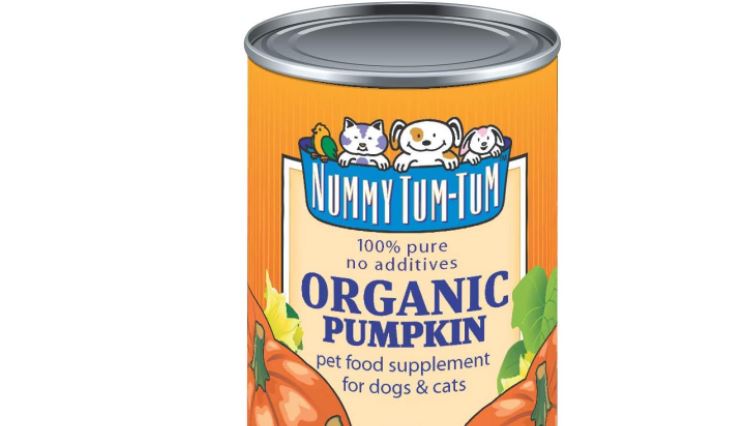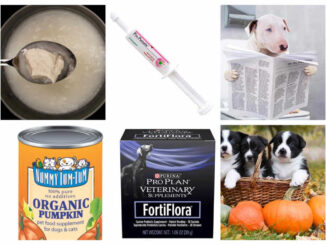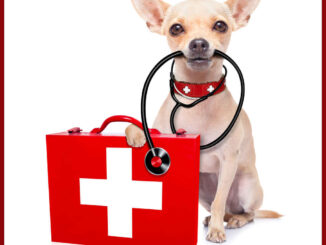
This article was updated on July 15th, 2022
In the world of superfoods, pumpkins rank high on the list. We humans eat pumpkins for their antioxidants, fiber, vitamins A, C, and E, Zinc, as well as immune system boosting properties. Plus, it tastes delicious! But did you know that pumpkin can also help dogs experiencing diarrhea?
For years, veterinary nutritionists and dog parents have used canned pumpkin to treat mild cases of doggy diarrhea. This creamy orange superfood is packed with good ingredients that can soothe tummy troubles. And it’s one of the most effective home remedies for dog diarrhea.
So how much pumpkin is needed to help a dog with diarrhea? It depends on your dog’s weight.
Does the Size and Weight of My Dog Matter?
Yes. Depending on how much your dog weighs and how big they are, owners will need to measure the appropriate amount of pumpkin to feed.
After all, a French Bulldog will have a much smaller stomach than a huge Irish Wolfhound. Toy dog breeds will need less than medium-sized dog breeds, which will of course require far less than large to giant-sized breeds.
Suggested Pumpkin Dosage for Dogs with Diarrhea [Dosage by Weight]

In terms of dosage and severity of diarrhea, we suggest starting small and then working your way up to the appropriate amount. Remember, mild cases of diarrhea shouldn’t last more than two days.
That being said, the following are recommended guidelines.
Pumpkin Dosage Table For Dogs:
| Your dog’s weight | Tablespoons |
| 10 pounds | 1 tsp |
| 20 pounds | 2 tsp |
| 30-50 pounds | 3 tsp |
| 50-100 pounds | 3-4 tsp |
| 100+ pounds | 4-5 tsp |
The best source of up-to-date and accurate information is your family veterinarian. That’s because they know your dog’s medical history. Before making any major changes to a dog’s diet, consult with your vet.
Is There Such a Thing as “Too Much” Pumpkin?
Absolutely.
When it comes to serving pumpkin to dogs, two things matter: quality and quantity.
Any pumpkin that has added sugar, spices like cinnamon, or is raw, must be avoided. Pumpkin pie filling is NOT the same as plain canned pumpkin. Always chose unsweetened varieties, always.
In addition, be careful about the quantity you feed your dog. Too much pumpkin will actually have the opposite effect – resulting in deficiencies elsewhere. Be careful not to feed too much in order to avoid diarrhea first, and mention the possible toxicity as the worst-case scenario, since death is worse than diarrheaIn a worst-case scenario, too much pumpkin could also be toxic since pumpkin is high in vitamin A.
Related post: Stop Your Dog’s Diarrhea at Home Fast with these 7 Home Remedies [recommended by a veterinarian]
How Does Pumpkin Help Dogs with Diarrhea?
A bout of diarrhea is hard on a dog’s stomach. Though they might have diarrhea but otherwise acting normal, frequent potty breaks with loose, discolored, or watery stools can leave dogs feeling uncomfortable and “out of sorts”. Not to mention, having accidents in the house can be upsetting for everyone involved.
Luckily, pumpkin is here to help: canned pumpkin contains micronutrients and fiber. These provide relief from diarrhea by firming up loose stools. Pumpkin also helps to absorb excess water while also promoting good bacteria in the digestive tract.
Summary
For dogs dealing with diarrhea, pumpkin can prove very helpful. It’s affordable, readily available on grocery store shelves, and easy to add to food. Add a can of unsweetened pumpkin to your cupboard for a 24/7 diarrhea pet first-aid fix!
Other Effective Home Remedies to Help with Dog Diarrhea:
Disclaimer: This website's content is not a substitute for veterinary care. Always consult with your veterinarian for healthcare decisions. Read More.





Be the first to comment